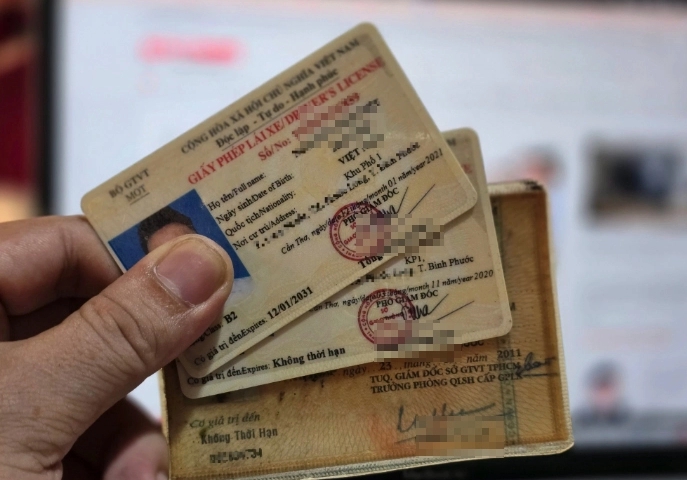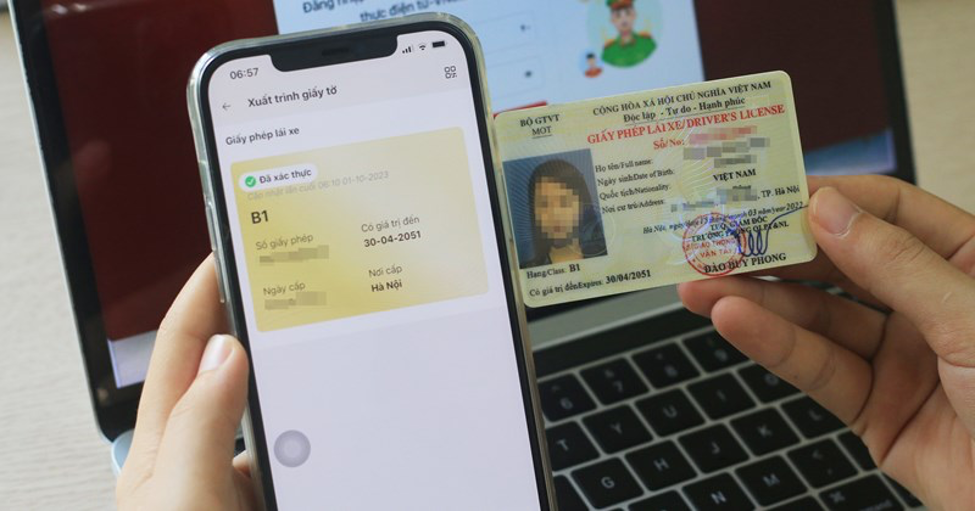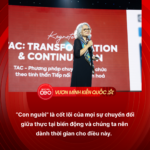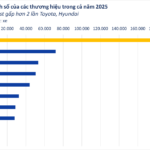On October 15th, the Ho Chi Minh City Traffic Police Department (CSGT) released detailed guidelines for converting old paper driver’s licenses (GPLX) to modern PET plastic cards.
Historically, due to technological limitations, paper-based driver’s licenses were widely used in many countries, including Vietnam.
However, these licenses have shown significant drawbacks over time, such as difficulty in preservation, susceptibility to damage, and low security, leading to a high risk of counterfeiting. Since July 1, 2012, the nationwide transition to PET-based licenses has been implemented. Paper licenses issued before this date remain valid and are used alongside the new PET cards.

The shift from paper to PET plastic cards not only offers practical benefits but also marks a significant milestone in the national digital transformation strategy, aiming to better serve citizens.
The CSGT emphasizes that PET material boasts superior security features, incorporating advanced anti-counterfeiting technologies and QR codes for easy verification by authorities. PET cards are also highly durable, waterproof, and compact, addressing all the shortcomings of traditional paper licenses.
Another crucial advantage is that once the transition is complete, driver’s license information will be digitized and integrated into the National Population Database. This allows citizens to sync their licenses with the National Digital Identity App (VNeID), enabling quick and convenient information presentation to traffic police and other agencies.
Furthermore, digitization simplifies the process of renewing or reissuing licenses through the CSGT’s Online Public Service Portal. Citizens can submit applications anytime, anywhere, significantly reducing travel costs and waiting times.

For those planning to drive abroad, a PET-based license is mandatory for obtaining an International Driving Permit (IDP). Additionally, in countries like France, Canada, and Spain, holding a PET license facilitates the process of converting or obtaining a local driver’s license.
The transition to PET cards not only enhances state management efficiency but also provides long-term convenience and security for citizens.
During the peak data review and cleanup period in Ho Chi Minh City (from October 8th to December 31st), the CSGT urges residents to actively provide information and collaborate with local authorities to complete the conversion from paper to PET licenses.
The goal is to transform every Ho Chi Minh City resident into a digital citizen, contributing to the city’s pioneering efforts in digital transformation and administrative reform.
ACB CEO: We’re Grappling with the Low-Interest Loan Race Against Big4
Mr. Tu Tien Phat, CEO of ACB, explains that while banks’ annual profits of 20-30 trillion VND may seem substantial, they are relatively insignificant when compared to their total assets.




















